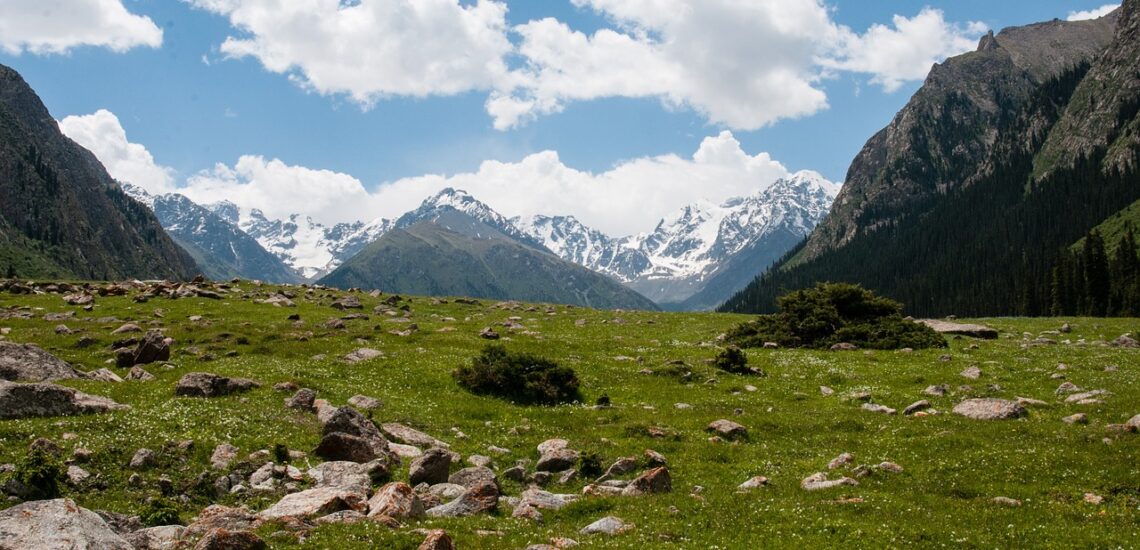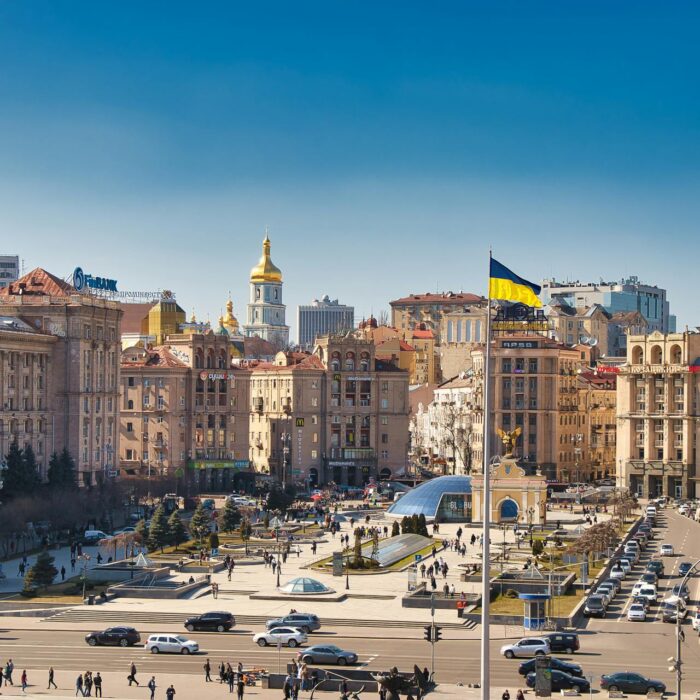Quick facts about Kyrgyzstan:
- Population: Approximately 6.5 million people.
- Official language: Kyrgyz.
- Capital: Bishkek.
- Currency: Kyrgyzstani som.
- Government: Republic with a parliamentary system.
- Major religion: Islam.
- Geography: Landlocked country in Central Asia, bordered by Kazakhstan, Uzbekistan, Tajikistan, and China.
Fact 1: Kyrgyzstan is 80% covered by mountains
Approximately 80% of Kyrgyzstan’s territory is covered by mountains, earning it the nickname “the Switzerland of Central Asia.” The country is known for its stunning mountain ranges, including the Tien Shan, Pamir, and Ala-Too ranges, which offer breathtaking landscapes, diverse ecosystems, and excellent opportunities for outdoor activities such as hiking, trekking, and mountaineering.
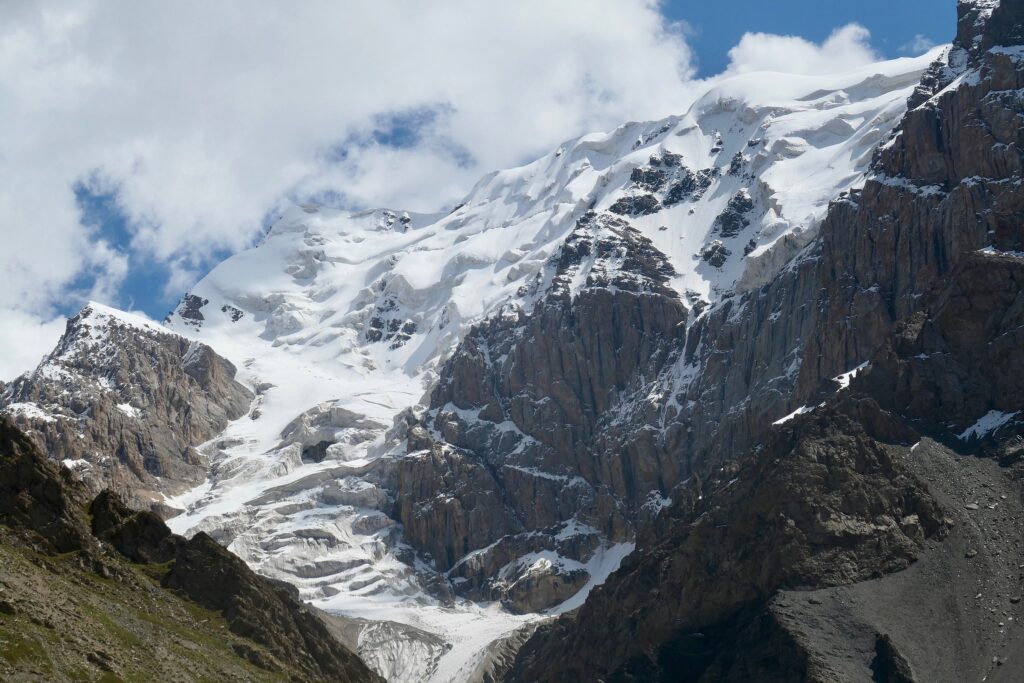
Fact 2: Kyrgyzstan has its own drink made from horse milk
In Kyrgyzstan, the traditional drink made from fermented horse milk is called “kymyz.” This beverage is an integral part of Kyrgyz culture and is believed to have various health benefits. It is commonly consumed during special occasions and celebrations, particularly during the summer months when mares are lactating. The drink is similar to Kazakhstan’s traditional drink made from fermented horse milk “kumis” (see 10 Interesting Facts about Kazakhstan).
Fact 3: Tourism in Kyrgyzstan is not very developed
The share of tourism in the economy of Kyrgyzstan ranges from 3 to 4% of GDP. While Kyrgyzstan’s tourism industry is not as developed as in some other countries, it is steadily growing in popularity. The country’s stunning natural landscapes, including majestic mountains, crystal-clear lakes, and vast alpine meadows, attract adventure seekers, nature lovers, and outdoor enthusiasts from around the world.
Kyrgyzstan offers a wide range of activities, such as trekking, horseback riding, skiing, and mountaineering, making it an ideal destination for eco-tourism and adventure tourism. Additionally, the country’s rich cultural heritage, including nomadic traditions, yurt stays, and vibrant festivals, offers unique cultural experiences for visitors.
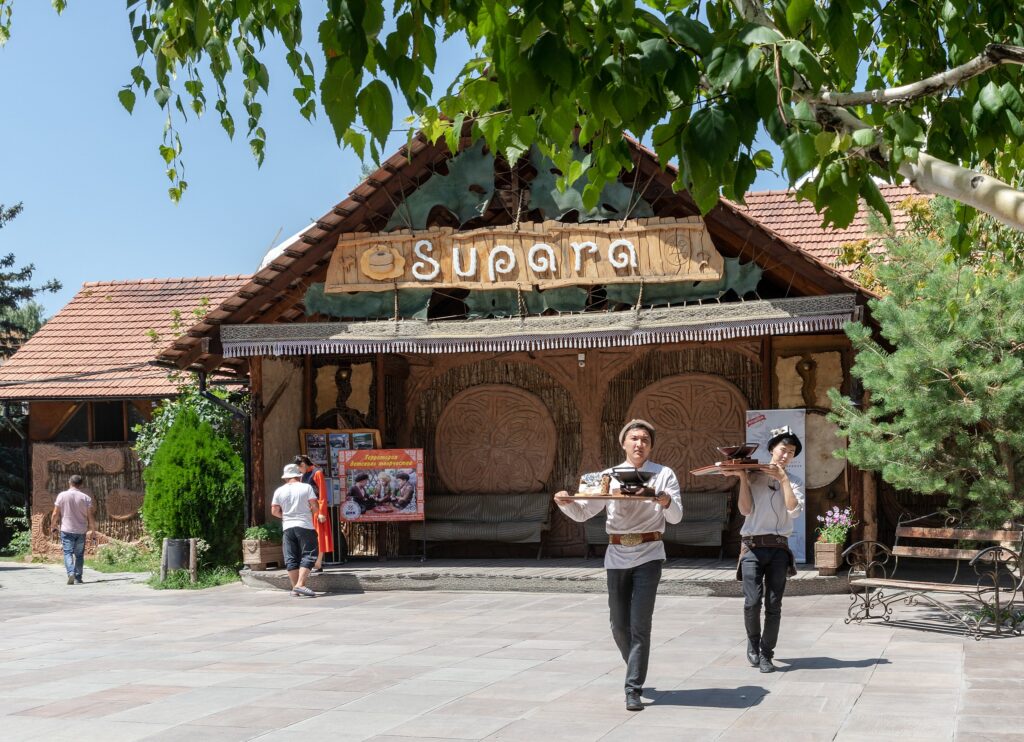
Fact 4: The name of the country translates to the Land of Forty Tribes
The name “Kyrgyzstan” is believed to derive from the Turkic word “kyrgyz,” which means “forty” or “forty tribes.” This name reflects the country’s rich nomadic heritage and the historical union of numerous tribal groups that inhabited the region. The designation “stan” signifies “land” or “place” in Persian and is commonly found in the names of countries in Central Asia. Thus, “Kyrgyzstan” translates to “the Land of Forty Tribes,” highlighting the diverse ethnic and cultural tapestry of the nation.
Fact 5: Yurts are traditional dwellings of nomads in Kyrgyzstan
Yurts are traditional portable dwellings that have been used by nomadic peoples in Central Asia, including Kyrgyzstan, for centuries. These circular tent-like structures are made of a collapsible wooden frame covered with felt or other materials. Yurts are well-suited to the nomadic lifestyle, as they are easy to assemble, disassemble, and transport. They provide warmth and shelter in the harsh mountainous landscapes of Kyrgyzstan and are still used by many people, especially in rural areas, as summer residences, guest accommodations, or even as venues for cultural events and celebrations. Yurts are an iconic symbol of Kyrgyz culture and heritage, reflecting the resilience and adaptability of the nomadic way of life.
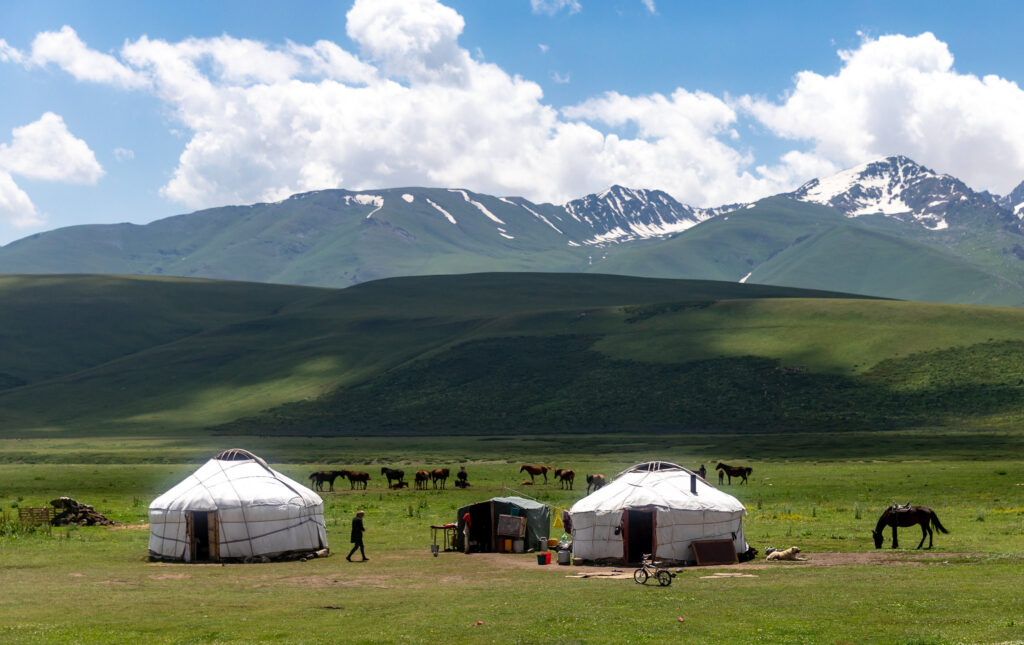
Fact 6: The longest poem in the world was written in Kyrgyzstan
The longest epic poem in the world, “Manas,” is a masterpiece of Kyrgyz literature and oral tradition. Composed over centuries and passed down through generations of storytellers, “Manas” is an epic tale that recounts the heroic deeds and adventures of the legendary Kyrgyz hero, Manas, and his descendants. The poem is estimated to contain over half a million lines and is recognized by UNESCO as part of the Intangible Cultural Heritage of Humanity. “Manas” holds immense cultural and historical significance for the Kyrgyz people.
Fact 7: Kyrgyzstan has cities from the time of the Silk Road
Kyrgyzstan is home to several cities that have existed since the time of the Silk Road, the ancient network of trade routes connecting the East and West. These cities served as vital hubs along the Silk Road, facilitating trade and cultural exchange between civilizations.
One notable city is Osh, one of the oldest cities in Central Asia, which has a history dating back over 3,000 years. Located in the Fergana Valley, Osh has been an important trading center since ancient times and continues to be a cultural and economic hub in Kyrgyzstan.
Another significant city is Talas, situated in the Talas Valley in northern Kyrgyzstan. Talas was a key stopover point along the Silk Road, renowned for its strategic location and thriving markets.
Note: If you are planning a trip to the country, check if you need an International Driver’s License in Kyrgyzstan to drive.
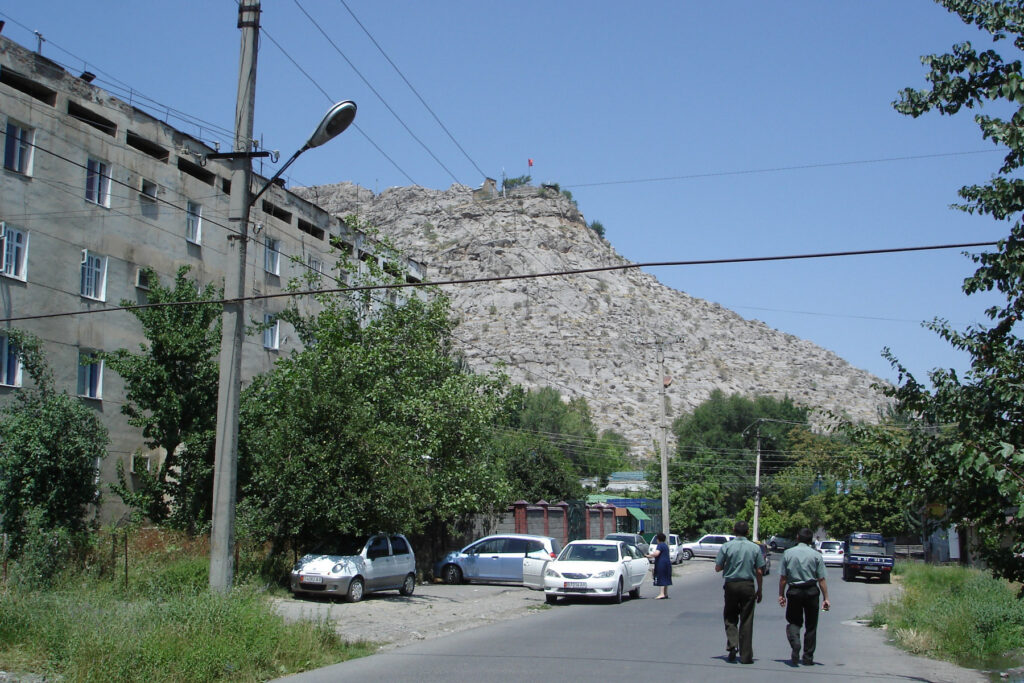
Fact 8: There are 11 national parks in Kyrgyzstan
These parks encompass diverse ecosystems, including mountains, forests, lakes, and alpine meadows, and offer opportunities for outdoor recreation, wildlife observation, and eco-tourism.
Some of the well-known national parks in Kyrgyzstan include:
- Ala Archa National Park
- Sary-Chelek Biosphere Reserve
- Chon-Kemin National Park
- Issyk-Kul Biosphere Reserve
- Besh-Tash National Park
- Karakol National Park
These national parks play a vital role in conserving Kyrgyzstan’s natural heritage and promoting sustainable tourism in the country.
Fact 9: Lake Issyk-Kul is the world’s second-largest high-altitude lake
The lake is situated in the northeastern part of the country, surrounded by the majestic Tien Shan mountain range. It is known for its stunning beauty, crystal-clear waters, and scenic landscapes.
Lake Issyk-Kul is approximately 6,236 square kilometers (2,408 square miles) in size and reaches depths of up to 668 meters (2,192 feet). It is a popular destination for tourists, offering a wide range of recreational activities such as swimming, sunbathing, boating, and fishing.
Due to its unique geography and climate, Lake Issyk-Kul remains unfrozen for most of the year, earning it the nickname “the Pearl of the Tien Shan.” Its pristine waters and surrounding mountains make it a haven for nature lovers and outdoor enthusiasts visiting Kyrgyzstan.
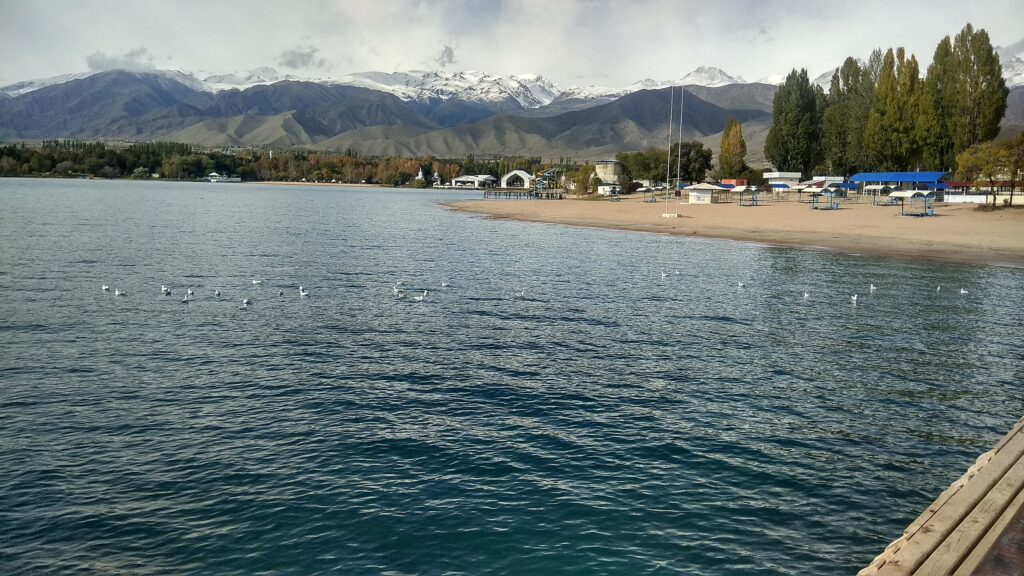
Fact 10: Kyrgyzstan has had several revolutions since independence
Since gaining independence from the Soviet Union in 1991, Kyrgyzstan has experienced several revolutions and significant political upheavals:
- Aksy Massacre (2002): While not a full-scale revolution, the Aksy Massacre was a significant event in Kyrgyzstan’s political history. It occurred in the town of Aksy in March 2002 when Kyrgyz security forces opened fire on protesters, resulting in several deaths. The protests were fueled by grievances over corruption and economic issues.
- Tulip Revolution (2005): The Tulip Revolution, also known as the March 2005 Revolution, led to the ousting of President Askar Akayev, who had been in power since Kyrgyzstan’s independence. Mass protests erupted across the country, fueled by allegations of corruption and electoral fraud. Akayev fled the country, and new leadership emerged.
- April Revolution (2010): The April Revolution, also known as the Kyrgyz Revolution of 2010 or the Second Kyrgyz Revolution, resulted in the overthrow of President Kurmanbek Bakiyev. The revolution was sparked by widespread discontent with Bakiyev’s rule, marked by allegations of corruption, authoritarianism, and economic mismanagement. Violent clashes between protesters and security forces ensued, leading to Bakiyev’s resignation and flight from the country.
- 2020 Protests and Political Crisis: In October 2020, Kyrgyzstan experienced a period of political turmoil following disputed parliamentary elections. Allegations of widespread electoral fraud sparked mass protests across the country, leading to the annulment of the election results. Protesters demanded the resignation of President Sooronbay Jeenbekov and called for political reforms. Amidst the unrest, several political leaders were arrested or fled the country. President Jeenbekov ultimately resigned, and a new government was formed.
Authoritarianism reigned in many post-Soviet countries. People in Kyrgyzstan fight against its manifestations every time in their country, which reflects their desire for freedom.

Published March 16, 2024 • 7m to read

